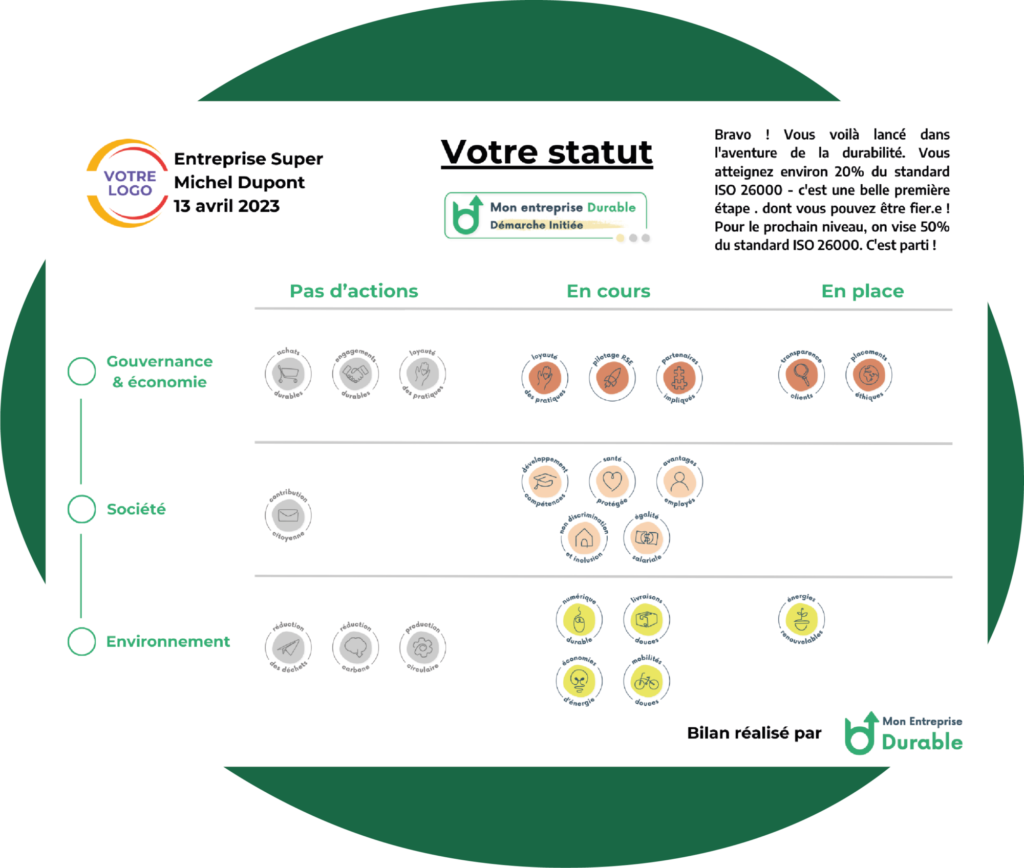5 CSR actions to inspire you
When it comes to CSR, it’s not always easy to be innovative.
Here are 5 actions to consider to inspire your own CSR policy.
Key points of the article
1 - Sustainable development: an essential social responsibility
The definition of sustainable development has evolved over time, but it generally means development that meets the needs of the present without compromising the ability of future generations to meet their own needs.
This means taking into account the economic, environmental and social aspects of development.
CSR is defined as a company’s contribution to sustainable development, taking into account its impact on its stakeholders, i.e. all the people and groups affected by its activities.
The main reasons why companies adopt a CSR strategy are reputation and brand image, legitimacy, employee motivation and well-being, and financial risk reduction.
CSR can therefore be a powerful tool for improving a company’s overall performance while promoting sustainable development.
2 - The ecological transition, a challenge for businesses
The ecological transition is a major challenge for companies.
Corporate social responsibility (CSR) is increasingly taken into account by investors and consumers alike.
Companies therefore have a role to play in the ecological transition.
They can implement CSR policies designed to promote the ecological transition.
For example, they can reduce their carbon footprint, cut energy consumption, encourage recycling, etc.
The ecological transition is a long and complex process, but companies can make a significant contribution to it.
3 - Good HR practices within the company
Good HR practices are essential for the ecological transition and corporate social responsibility.
They enable companies to better manage their human capital, reduce operating costs and develop a more efficient workforce.
Good HR practices can also help improve quality of life at work and foster a greener environment.
For example, companies can set up sustainable mobility programs to encourage employees to use public transport or reduce their car journeys.
They can also encourage teleworking and implement flexible working time policies.
By implementing good HR practices, companies can actively contribute to the ecological transition while improving the well-being of their employees.
4 - Chief Impact Officers: an asset for reducing the environmental impact of companies
More and more companies are appointing “Chief Impact Officers” to their management teams.
The emergence of this new marketing and communications management position could help companies take their social commitment to the next level.
The CIO is responsible for “measuring impact” in terms of social, societal or environmental progress.
They usually sit on boards of directors (following the example of Kat Borlogan, a young French entrepreneur who pioneered this function) and have access to privileged discussions on strategic plans; they can also participate in these decisions, develop processes or make any proposals that might improve the company’s CSR.
This new function, which is still uncommon in France and Europe, is gaining ground in engagement and sustainable development departments.
5 - When the advertising industry needs to create new CSR codes :
The Cannes Lion festival, the International Festival of Creativity, has been disrupted by a former winner who has returned his trophy, denouncing the environmentally and socially disrespectful practices of the car and airline companies in which he once worked.
Today, he works for Greenpeace, proposing tough fines for fossil fuel companies – essentially sanctions against those involved in CO2 emissions or the transport systems that depend on them.
Here are a few examples to inspire your own CSR policy.
There are many in this ever-changing world.






